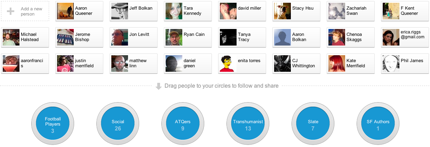Purdue Research Looks To Give Vision to Smartphones
- By Dian Schaffhauser
- 04/14/14
Purdue University researchers are figuring out a way to make smartphones smarter. The goal is to enable the devices to "understand" and identify and tag objects that appear in a camera's field of view. That capability could find use in healthcare, augmented reality, facial recognition systems and robotic cars.
The work of figuring out how to teach computers to identify what is being displayed in an image isn't new. What is unique is having that activity take place on a mobile device.
"You might have 10,000 images in your computer, but you can't really find an image by searching a keyword. Say you wanted to find pictures of yourself at the beach throwing a football. You cannot search for these things right now," said Eugenio Culurciello, an associate professor in the university's School of Biomedical Engineering and department of Psychological Sciences. "The deep-learning algorithms that can tag video and images require a lot of computation, so it hasn't been possible to do this in mobile devices,"
Now, he added, "We have an approach for potentially embedding this capability onto mobile devices, which could enable these devices to analyze videos or pictures the way you do now over the Internet."
| |

Purdue University Associate Professor Eugenio Culurciello's image recognition tool tags images in real time. |
|
Culurciello is working on the concepts with Berin Martini, a research associate at Purdue, as well as several graduate students.
So far the research group has developed software and hardware and shown how the combination could be used to enable a conventional smartphone processor to run deep-learning software. The work was shared in a poster presentation during a Neural Information Processing Systems conference. The team's approach is about 15 times "more efficient" than conventional graphic processors, and they anticipate an additional 10-fold improvement.
Processing of the analysis is done in layers. "They are combined hierarchically," Culurciello said. "For facial recognition, one layer might recognize the eyes, another layer the nose, and so on until a person's face is recognized."
For example, he added, "Say you are viewing medical images and looking for signs of cancer. A program could overlay the pictures with descriptions."
Now Culurciello has started a company, called TeraDeep, to commercialize his findings in "intelligent vision systems." As his start-up's site explains, "We develop embedded hardware modules and server modules that can efficiently compress images and videos into tags in real-time. These tags are used by users to retrieve their memories."
The research has been funded by the Office of Naval Research, National Science Foundation and Defense Advanced Research Projects Agency.
About the Author
Dian Schaffhauser is a former senior contributing editor for 1105 Media's education publications THE Journal, Campus Technology and Spaces4Learning.